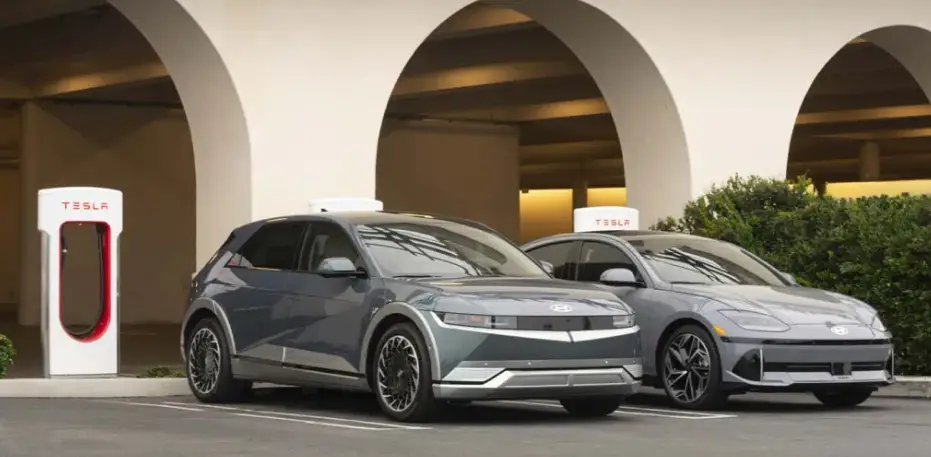Hyundai is set to initiate the production of its inaugural electric vehicle (EV) at its newly established Metaplant in Georgia. This facility, manifesting a significant $7.6 billion investment by Hyundai, marks an ambitious step towards boosting domestic EV production—a move that aligns with the Biden administration’s sustainability goals. Upon full operation, the Metaplant is expected to create 8,500 direct jobs and, considering the broader impact on suppliers, catalyze a projected $12.6 billion in additional investments while generating about 50,000 new jobs.
This surge in Hyundai’s U.S. operations arrives amid political tensions and potential threats to the EV industry, primarily fueled by former President Trump’s opposition. Trump has publicly declared his intent to eliminate EV mandates immediately if re-elected, positioning himself squarely against the current administration’s EV-friendly policies. In light of such political uncertainties, Hyundai has notably ramped up its lobbying efforts in the U.S., with expenditures totaling $520,000 in early 2024—a 147% increase from the early 2020 period.
The regulatory environment, especially the Inflation Reduction Act (IRA) passed in August 2022, plays a pivotal role in fortifying Hyundai’s new venture. The Act enables vehicles produced at the Georgia plant to qualify for a $7,500 EV tax credit, significantly enhancing the competitiveness of Hyundai’s models. The facility is slated to roll out the 2025 Hyundai IONIQ 5 by the end of 2024, marking a significant milestone in Hyundai’s expansion in the EV market.
The significance of Hyundai’s investment has not gone unnoticed at the state level. In a gesture of recognition, the Georgia General Assembly declared February 26, 2024, as “Hyundai Day,” celebrating the automaker’s commitment and contributions to the state’s economic and industrial landscape.
Hyundai, along with its sister company Kia, has been progressively capturing a larger slice of the EV market, achieving new sales records in the recent quarters amid towering demand. Models like Hyundai IONIQ 5 and IONIQ 6 are poised to challenge market dynamics with their competitive pricing and efficiency, making them among the most economically accessible and fuel-efficient EVs in the U.S.
However, the political climate poses a potential risk to the ongoing progress in the EV sector. Industry observers like Electrek have criticized Trump’s remarks on EV mandates, pointing out significant gaps in his understanding of current automotive and environmental regulations. Critics argue that his stance not only misinforms the public but also threatens to increase climate pollution and put American lives at risk. Furthermore, this could potentially set back American automakers like Ford and GM in their competition against global giants such as China’s BYD.
Automakers across the U.S. are bracing for possible policy shifts that might stall critical EV development projects. Companies like Ford have underscored the urgency of developing profitable EVs within the next five years, hoping to mitigate potential setbacks and maintain competitive momentum.
In the broader dialogue, user engagement on social media underscores the contentiousness surrounding Trump’s anti-EV rhetoric. A particularly noted comment from a user under the pseudonym TheCyberKnight received extensive approval for criticizing the ex-president’s dismissive attitude towards EVs, citing his misinformation campaigns and alleged alliances with big oil interests.
As policy, competition, and environmental considerations converge, Hyundai’s new EV facility represents both a substantial economic promise and a focal point in the ongoing debate over America’s automotive future. The developments here not only shape the trajectory of the company but also reflect broader challenges and opportunities within the dynamic U.S. auto industry.
